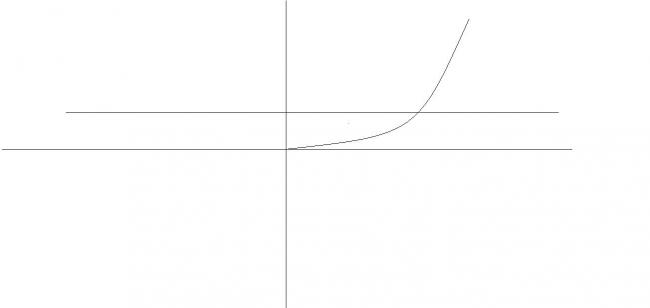 62
62Hint:
\left(1/2+2 \right)^{x/2}=\frac{1}{2^{x/2}}+2^{x/2}
So we have (a+b)x=ax+bx
 341
341Else:
let f(y) = yx/2
Then by Lagrange Mean Value Theorem
5^{\frac{x}{2}} - 4^{\frac{x}{2}} = \frac{x}{2} \ t^{\frac{x}{2}-1}, t \in (4,5)
Let g(x) = \frac{x}{2} \ t^{\frac{x}{2}-1}
Then for x>2 g(x)>1 and for x<2, g(x) <1. for x=2 g(x) =1.
Hence x=2 is the unique solution
 1
1i didnt undersatnd #2 sir. help
 1
1
Well , the graph pretty much sums it up :)
 62
62in #2 i have rewriten the question in the form (x+y)n R (xn+yn)
W0hich is same as proving (x/y+1)n R (x/y)n+1
Which issame as (1+a)n R (1+a)
If a is not equal to zero... then if the two sides are equal, n=1
So in hte above question x/2=1
hence x=2 is the solution...
 62
62@Prophet Sir.. awesome proof [1]
